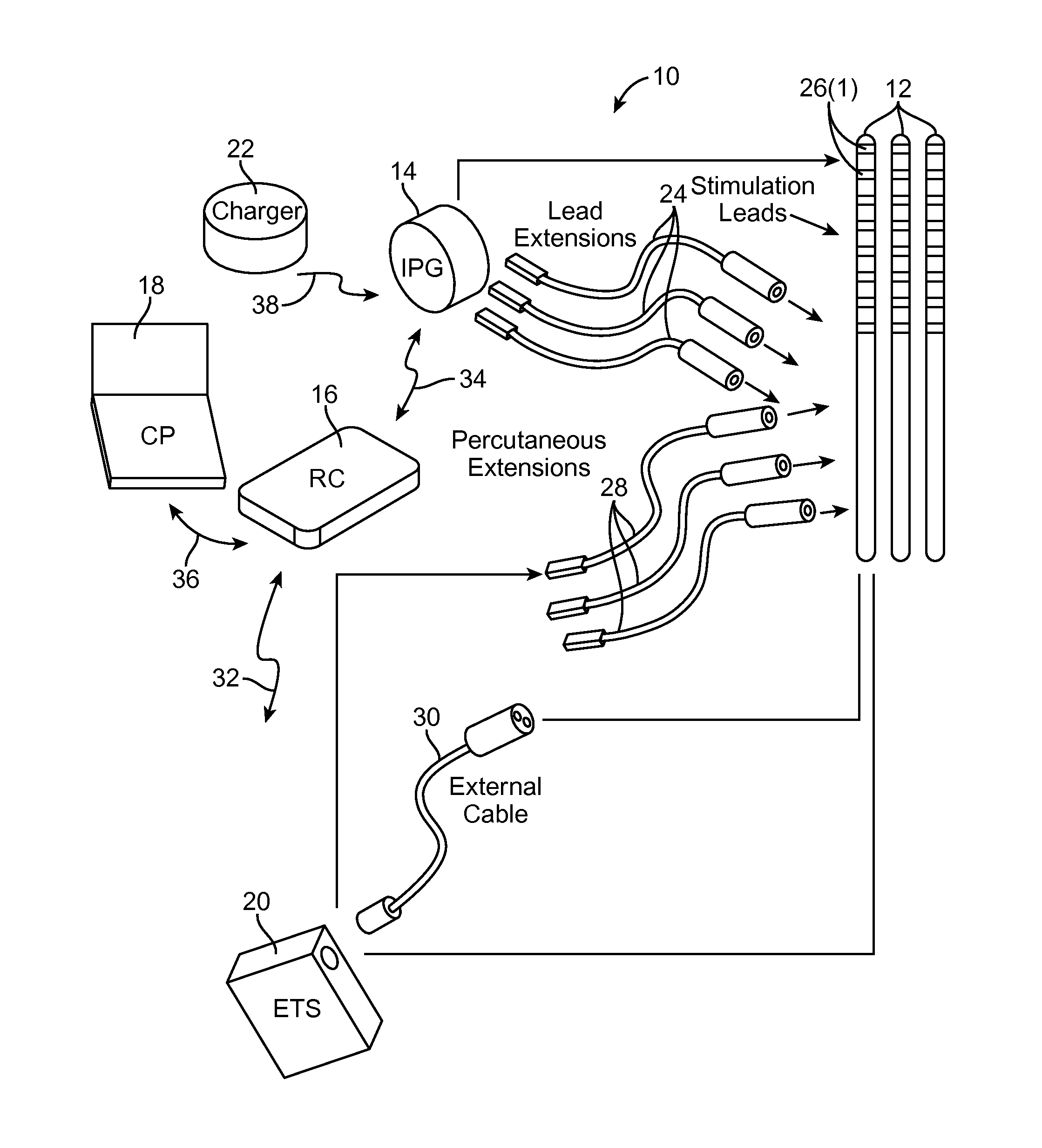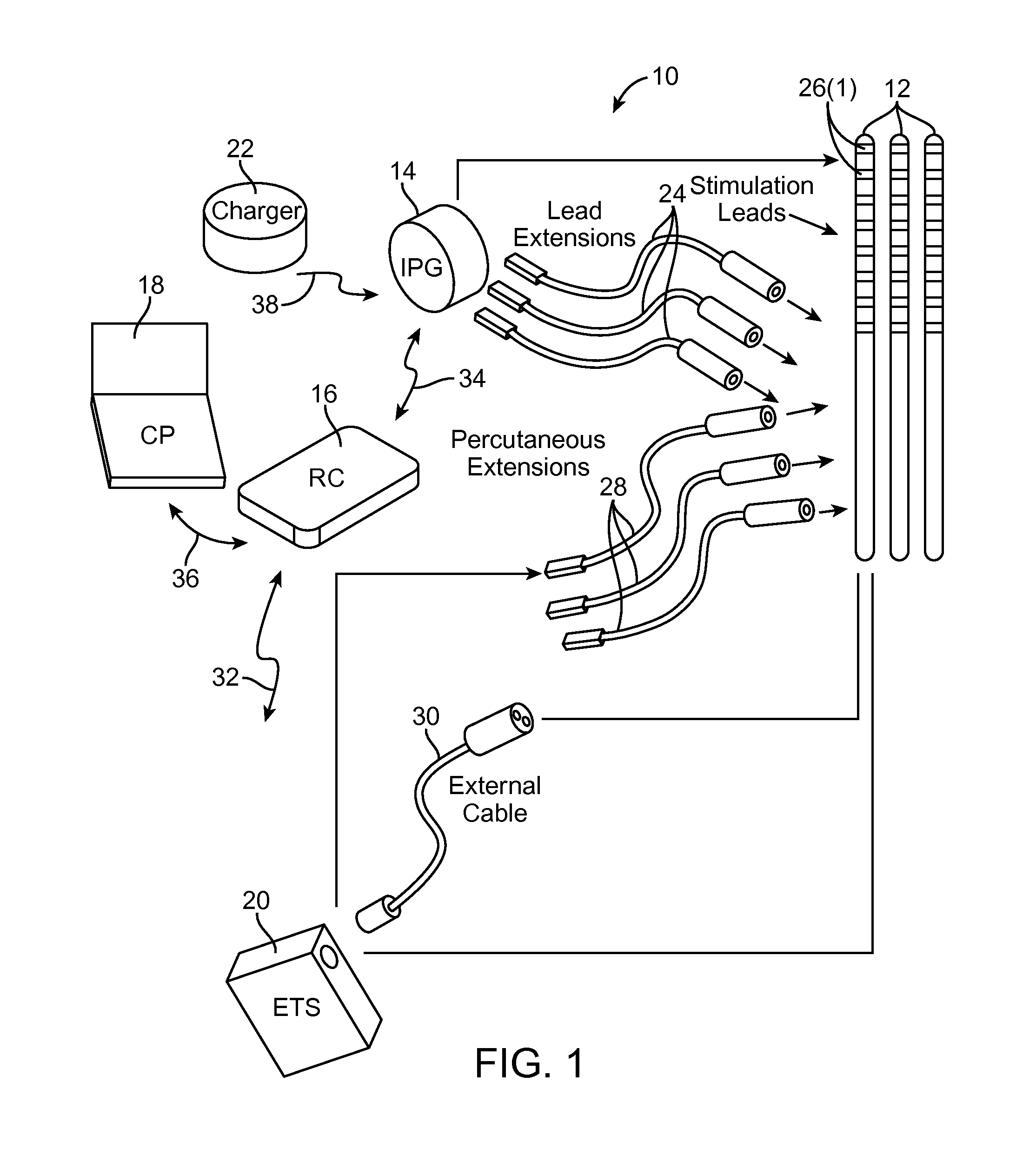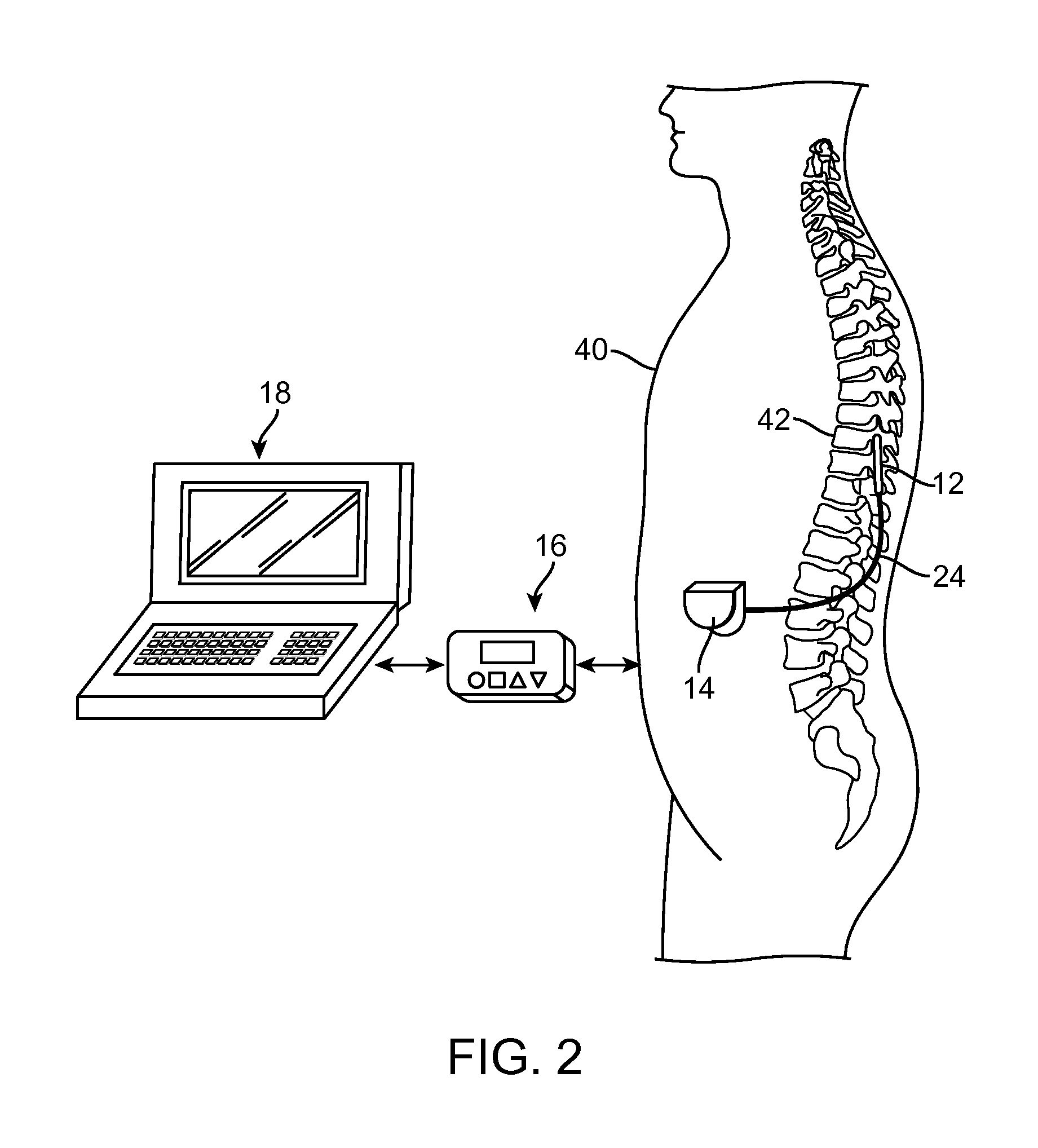Method for epidural stimulation of neural structures
a neural structure and epidural stimulation technology, applied in the field of tissue stimulation systems, can solve the problems of significant side effects, inconvenient operation, and difficulty in achieving scs stimulation to treat chronic neuropathic pain, and achieve the effect of increasing the activation threshold of the efferent neural structur
- Summary
- Abstract
- Description
- Claims
- Application Information
AI Technical Summary
Benefits of technology
Problems solved by technology
Method used
Image
Examples
Embodiment Construction
[0030]Turning first to FIG. 1, an exemplary SCS system 10 generally comprises a plurality of neuromodulation leads 12 (in this case, three), an implantable pulse generator (IPG) 14 (or alternatively RF receiver-stimulator), an external remote control (RC) 16, a Clinician's Programmer (CP) 18, an External Trial Stimulator (ETS) 20, and an external charger 22.
[0031]The IPG 14 is physically connected via one or more lead extensions 24 to the neuromodulation leads 12, which carry a plurality of electrodes 26 arranged in an array. The neuromodulation leads 12 are illustrated as percutaneous leads in FIG. 1, although as will be described in further detail below, a surgical paddle lead can be used in place of the percutaneous leads. As will also be described in further detail below, the IPG 14 includes pulse generation circuitry that delivers electrical stimulation energy in the form of a pulsed electrical waveform (i.e., a temporal series of electrical pulses) to the electrode array 26 in...
PUM
 Login to View More
Login to View More Abstract
Description
Claims
Application Information
 Login to View More
Login to View More - R&D
- Intellectual Property
- Life Sciences
- Materials
- Tech Scout
- Unparalleled Data Quality
- Higher Quality Content
- 60% Fewer Hallucinations
Browse by: Latest US Patents, China's latest patents, Technical Efficacy Thesaurus, Application Domain, Technology Topic, Popular Technical Reports.
© 2025 PatSnap. All rights reserved.Legal|Privacy policy|Modern Slavery Act Transparency Statement|Sitemap|About US| Contact US: help@patsnap.com



